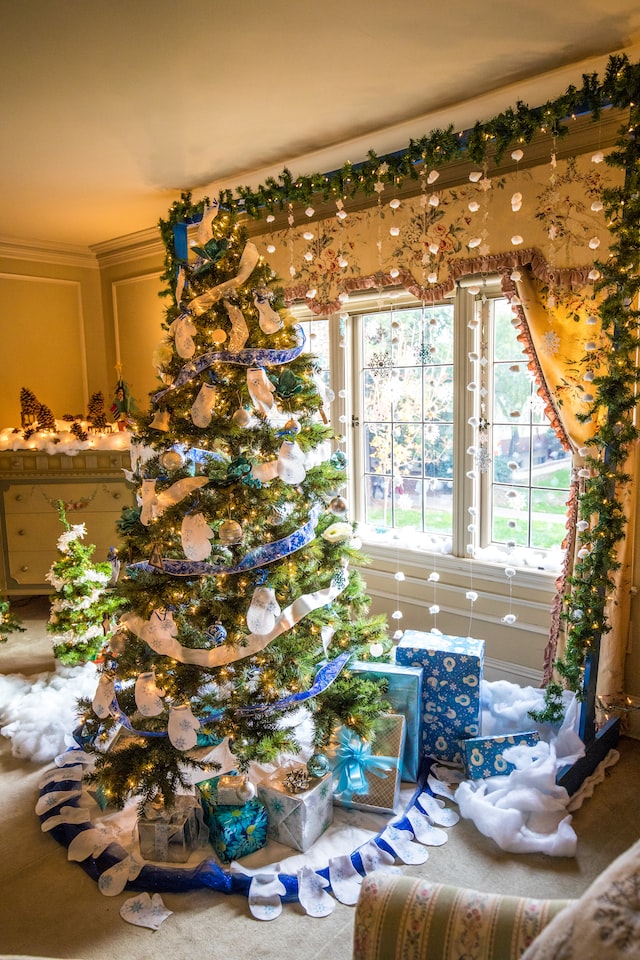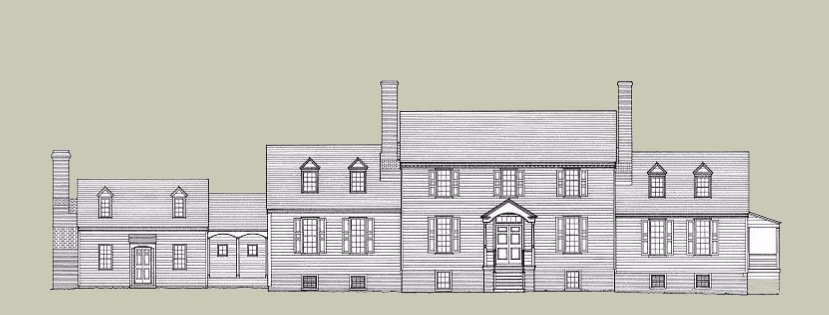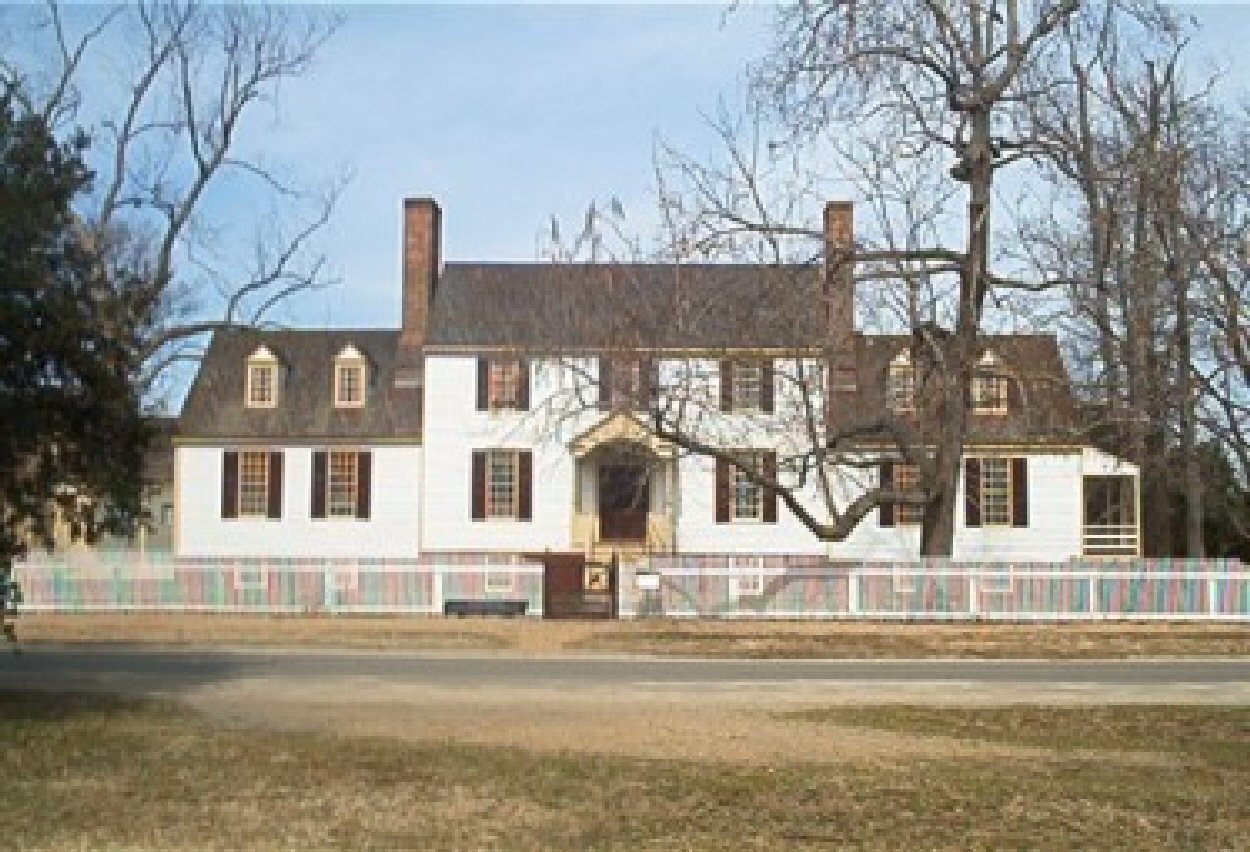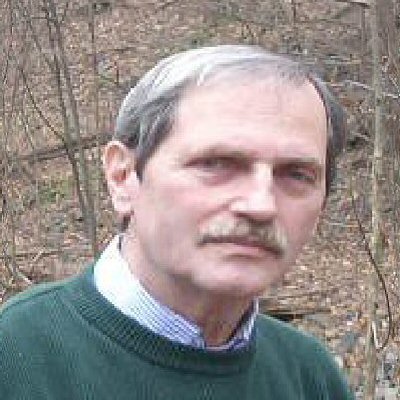The Story of America’s First Christmas Tree
 Christmas trees now sparkle in millions of homes, but did you ever wonder how the tradition began? No doubt there are many stories regarding the start of this custom. So, as we do each year, here’s one we’d like to pass along.
Christmas trees now sparkle in millions of homes, but did you ever wonder how the tradition began? No doubt there are many stories regarding the start of this custom. So, as we do each year, here’s one we’d like to pass along.
At first, celebrating Christmas in America — with or without a tree — was simply banned.
“America,” according to the Macon County News, “was late to adopt many Christmas customs because to the New England Puritans, Christmas was sacred and was a celebration of Christ’s birth. William Bradford, the pilgrim’s second governor, wrote that he tried hard to stamp out ‘pagan mockery’ of the observance, penalizing any frivolity. The influential Oliver Cromwell preached against ‘the heathen traditions’ of Christmas carols, decorated trees, and any joyful expression that desecrated ‘that sacred event.’
“Americans,” continued News staff writer Brittney Parker, “were so against any celebration of the holiday outside of church services, in 1659, the General Court of Massachusetts enacted a law making any observance of Dec. 25, other than a church service, a penal offense; and people were fined for hanging decorations.”
By the 1800s Americans were no longer colonists under British rule and the First Amendment had established both freedom of religion and freedom of the press.
First Christmas Tree Traditions
“It’s now been more than 150 years since Professor Charles Minnigerode decorated Williamsburg’s first Christmas tree,” said Robert C. Wilburn, then president of the Colonial Williamsburg Foundation, in a 1998 letter to supporters of the historic city.
“A German native, the College of William and Mary professor brought the festive tradition with him to the United States. When Nathaniel Beverley Tucker invited Professor Minnigerode to celebrate the holiday season at the St. George Tucker House, he trimmed a tree with candles and fancy paper decoration as a present for Tucker’s children.”
Beverley Randolph Tucker, a descendant, says “regular-sized candles were cut down and fastened on the tree, nuts were gilded, and other ornaments made. Presents were probably not distributed at this time, but there were songs, games, and refreshments.” (See: Tales of the Tuckers, Dietz Printing Co., Richmond, VA, 1942).
That humble beginning with the first Christmas tree in 1842 — and no doubt similar celebrations with other immigrants — evolved into what is now a tradition observed in millions of American homes.
The St. George Tucker House
As to the St. George Tucker house, it was donated to Williamsburg in 1993 after more than 200 years of family ownership. Used now as a donor hospitality center, the home is one of the most unusual examples of original colonial architecture to be found.
St. George Tucker was born in Bermuda in 1752 and came to the colonies to study law at William and Mary under George Wythe, whom he later succeeded. He was a member of the collegiate Flat Hat Society — a fraternity that evolved into what we today know as Phi Beta Kappa.
In 1788, Tucker bought three lots on the green in Williamsburg near the governor’s palace. This was once the site of the first theater in America, Levingstone’s, as well a small house.
Tucker then built a home on the property which was expanded left and right, wing after wing, until he decided to try something different: the house was pushed forward with the result that a visitor now finds parlors that have windows looking over the Williamsburg green as well as windows which look into the home’s great hall. (Today there is actually a modern version designed in the style of the original house.)
St George Tucker House (Source: Historic American Buildings Survey (Library of Congress), HABS VA,48-WIL,33-)

St George Tucker House (Source: Historic American Buildings Survey (Library of Congress), HABS VA,48-WIL,33-)
Nine Children
Such expansion was a necessity because Tucker had nine children and five stepchildren from two wives. While not all lived to adulthood, a family dinner could include Tucker as well as three children who served in the Congress at the same time: Beverley Tucker, Henry St. George Tucker and John Randolph (a stepson). His brother, Thomas T. Tucker, a physician, was appointed Treasurer of the United States by Jefferson and served from 1801 to 1808.
(A third brother, Henry Tucker, was President of the Bermuda Governor’s Council — in essence, the governor. Today the Tucker House in St. George’s Bermuda is a national museum while in Hamilton the famous Bermuda Underwater Exploration Institute was founded by a family descendant, Teddy Tucker. Teddy Tucker, in turn, was the basis for Peter Benchley’s book, The Deep.)
The Revolutionary War
“When he was in his early twenties,” wrote Beverly Randolph Tucker of St. George Tucker, “he happened to be in Richmond during the meeting of the Assembly at St. John’s Church and to have been sitting in the gallery when Patrick Henry made his famous ‘Give me Liberty or Give me Death‘ speech and immediately afterward St. George Tucker wrote what we know of the speech today.”
When the Revolution began, the British seized the Williamsburg magazine to deprive the colonialists of ammunition and powder. Believing that fair is fair, Tucker sailed to Bermuda. There he “liberated” the British magazine and brought tons of arms and ammo back to the colonialists. This is known in the islands as the Bermuda Gunpowder Plot.
Legacy of St. George Tucker
After the revolution, Tucker taught law at William and Mary, became a judge, and in 1803 published an Americanized edition of Blackstone’s Commentaries. This five-volume set is one of the foundations of our legal system and today is still in print.
St. George Tucker held a number of opinions that are at the core of American law and custom.
Tucker On Religion
On religion he wrote, “liberty of conscience in matters of religion consists in the absolute and unrestrained exercise of our religious opinions, and duties, in that mode which our own reason and conviction dictate, without the control or intervention of any human power or authority whatsoever.”
Tucker On A Free Press
Tucker was also a strong believer in the concept of a free press.
“Liberty of speech and of discussion in all speculative matters, consists in the absolute and uncontrollable right of speaking, writing, and publishing, our opinions concerning any subject, whether religious, philosophical, or political….”
Tucker On Slavery
Perhaps most remarkably, in a state and a society where the ownership of slaves was equated with wealth and status, and where Tucker was among the wealthiest people in Virginia, he wrote in 1796 — more than 60 years before the start of the Civil War — an essay entitled A Dissertation on Slavery: With a Proposal for the Gradual Abolition of It in the State of Virginia.
Whilst America hath been the land of promise to Europeans, and their descendants, it hath been the vale of death to millions of the wretched sons of Africa,” he wrote. “The genial light of liberty, which hath here shone with unrivalled lustre on the former, hath yielded no comfort to the latter, but to them hath proved a pillar of darkness, whilst it hath conducted the former to the most enviable state of human existence. Whilst we were offering up vows at the shrine of Liberty, and sacrificing hecatombs upon her altars; whilst we swore irreconcilable hostility to her enemies, and hurled defiance in their faces; whilst we adjured the God of Hosts to witness our resolution to live free, or die, and imprecated curses on their heads who refused to unite with us in establishing the empire of freedom; we were imposing upon our fellow men, who differ in complexion from us, a slavery, ten thousand times more cruel than the utmost extremity of those grievances and oppressions, of which we complained.
Tucker died in 1827, and it was his son, Nathaniel Beverley Tucker, also a judge and professor of law at William and Mary, who hosted the famous tree in 1842.
No doubt if Mr. Tucker were with us today he would extend to one and all the very best wishes for this holiday season and the coming New Year.
————————
Photo by Jason Leung on Unsplash
Published originally by Realty Times on December 25, 2005, posted with permission and expanded from the original.




https://patch.com/connecticut/ellington-somers/americas-first-christmas-tree-the-connecticut-connection